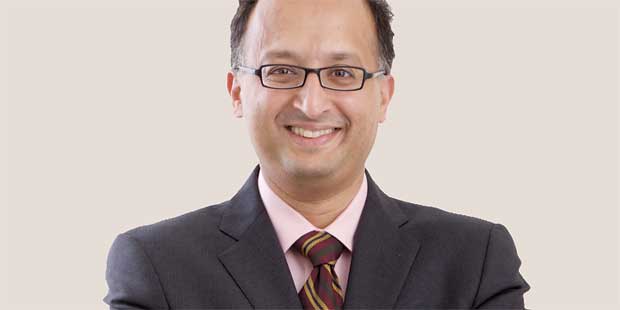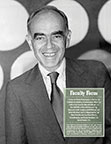Introducing Sujit Choudhry
Professor of Law
Printer Friendly VersionFor a renowned comparative constitutional law scholar who has written or edited more than 60 works, Sujit Choudhry spends a lot of time with his boots on the ground.
In 2003, he and a team of foreign constitutional experts traveled to Sri Lanka to propose a federalist solution to the country’s ethnic conflict. They drove past burned-out villages and barbed-wire checkpoints guarded by machine gun–toting soldiers. He made similar trips to Nepal in 2007 and 2010 in support of constitutional negotiations. “He’s not an ivory-tower intellectual,” says Michael Trebilcock, chair in law and economics at the University of Toronto Faculty of Law. “He’s a public intellectual with a bewildering array of public policy involvements.”
Choudhry has appeared before the Supreme Court of Canada three times, including for the highly publicized case of Omar Khadr, the only Canadian citizen held at Guantánamo Bay. He was part of the three-member Governing Toronto Advisory Panel that drafted a proposal leading to the restructuring of the city government. As a board member of Legal Aid Ontario, he found himself in the middle of a nightmare scenario when the organization’s defense counsel went on strike, threatening to shut down Ontario’s criminal justice system.
Choudhry leaves the University of Toronto Faculty of Law, where he held the Scholl Chair, to join the NYU Law faculty this fall. He’ll teach Comparative Constitutional Law, both in the classroom and in the field, as he plans to create a center to deploy students and colleagues to post-conflict countries that are grappling with constitutional issues. He also plans to visit the Middle East to identify projects emerging out of the Arab Spring. “He brings a unique dimension to our program,” says Beller Family Professor of Business Law Kevin Davis, Choudhry’s childhood friend, as his interest in Asia and Africa complements the faculty’s strength in European constitutional law.
Choudhry started writing in the late 1990s, when the changing political landscape in Eastern Europe and South Africa produced an enormous but polarized scholarship in comparative constitutional law. Some scholars encouraged courts to look to other nations for guidance. Others discouraged comparative engagement by courts, arguing that a nation’s constitution is the very embodiment of its unique identity. Both camps missed the boat, according to
Choudhry, who staked out a third position in “Globalization in Search of Justification: Toward a Theory of Comparative Constitutional Interpretation” (Indiana Law Journal, 1999). He argues that a nation can best grasp what its constitution should be by using others as a tool for self-reflection: “Comparative materials help us define better what we want to include, and what we want to avoid.”
Since then, Choudhry has focused on forging constitutions in ethnically divided societies. He brought together legal scholars and political scientists in editing one of the most important collections in the field, Constitutional Design for Divided Societies: Integration or Accommodation? (Oxford University Press, 2008). “He’s by far the best comparative constitutional scholar of his generation,” says Sanford Levinson of the University of Texas School of Law.
Born in Delhi and raised in Toronto, Choudhry says his Indian immigrant parents created a home for grooming scholars. “Our house was all about intellectual stimulation. The radio was permanently tuned to CBC [Canada’s version of NPR], and we read several newspapers daily,” he recalls.
His late father, Nanda, taught economics at the University of Toronto; his mother, Ushi, taught nursing. “They had a procession of academic visitors from around the world to the house for dinner parties,” he remembers. “My brother, Niteesh, and I always sat at the table and were part of these events. It’s no coincidence that we’re both academics.” (Niteesh teaches at Harvard Medical School.)
Premed at McGill University, Choudhry became interested in law after a summer internship in bioethics. Attending Oxford as a Rhodes Scholar, he earned a Bachelor of Arts in Law in 1994. Two years later he earned a Bachelor of Laws from the University of Toronto. After clerking for the Supreme Court of Canada, he earned a Master of Laws at Harvard Law School in 1998.
Choudhry joined the University of Toronto in 1999, receiving tenure in 2004. He received high marks for teaching. “It was hard to come out of his class without being a little more excited about constitutional law because he had such passion for it,” says former student Michael Pal (LL.M. ’10).
Of a typical busy week, when he may be teaching, writing, chairing faculty meetings, and attending to his policy work, Choudhry says, “It can be a bit frenetic. And then there are the kids!” He and his wife have a daughter and son, and, he says, “We look forward to raising our kids in a global city.”
—


 Multimedia
Multimedia